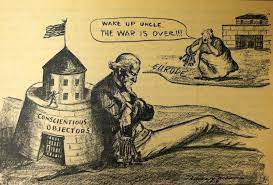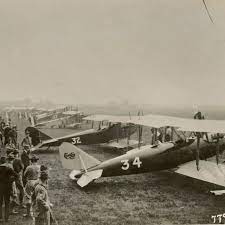The 19th of January 1920 marked a pivotal moment in American history as law enforcement authorities launched a widespread crackdown on radical leftists, initiating what would be known as the "Palmer Raids." Named after Attorney General A. Mitchell Palmer, the raids were a response to the perceived threat of communism and anarchism spreading across the United States in the aftermath of the Russian Revolution and the end of World War I.
During this tumultuous period, the fear of radical ideologies infiltrating American society reached a fever pitch. The government, under the leadership of Attorney General Palmer, believed that the country was on the brink of a revolution orchestrated by left-wing radicals. The fear was fueled by the rise of socialist and communist movements, coupled with labor strikes and the infamous Red Scare, which exacerbated public anxiety about the spread of radical ideologies.
On that fateful day in 1920, law enforcement agencies, aided by J. Edgar Hoover and the young Bureau of Investigation (later to become the FBI), conducted coordinated raids in numerous cities across the nation. The primary targets were individuals associated with leftist political groups, including anarchists, socialists, and communists. The authorities sought to dismantle what they perceived as a dangerous network of subversive elements that posed a direct threat to the established order.
The raids were marked by a series of arrests, detentions, and deportations. Many of those targeted were immigrants who had arrived in the United States during the earlier waves of European migration. The authorities used the Espionage Act of 1917 and the Sedition Act of 1918 as legal grounds for these actions, enabling them to arrest individuals based on their political affiliations and expressions of dissent.
The Round Up of Radical Leftists stirred intense controversy and criticism from various quarters. Civil liberties advocates condemned the raids as an infringement on the First Amendment rights of free speech and assembly. Many argued that the government's actions were a disproportionate response to the perceived threat and amounted to a violation of individual freedoms.
While the Palmer Raids were initially celebrated by some as a bold move to safeguard the nation, the aftermath revealed the extent of their controversial nature. The vast majority of those arrested were ultimately released, and the raids failed to uncover any substantial evidence of a widespread conspiracy. Instead, they left a stain on the reputation of Attorney General Palmer and underscored the delicate balance between national security concerns and the protection of civil liberties.
In retrospect, the Round Up of Radical Leftists serves as a cautionary tale about the impact of fear and paranoia on civil liberties during times of social and political upheaval. The events of that day remain a reminder of the challenges faced by any society when balancing security interests with the fundamental rights and freedoms that form the bedrock of democratic governance.






